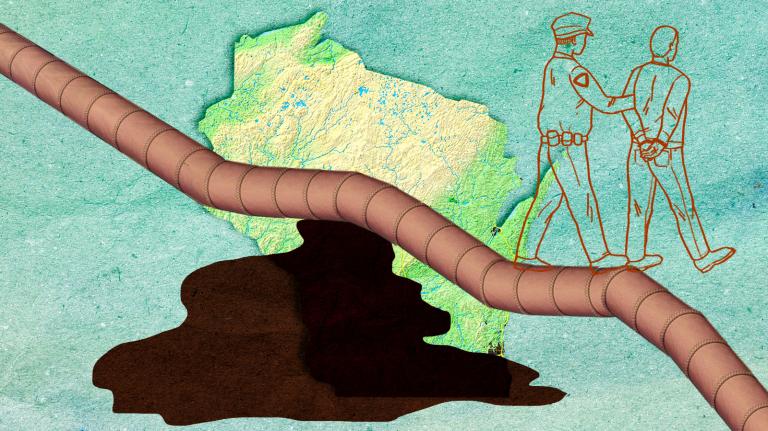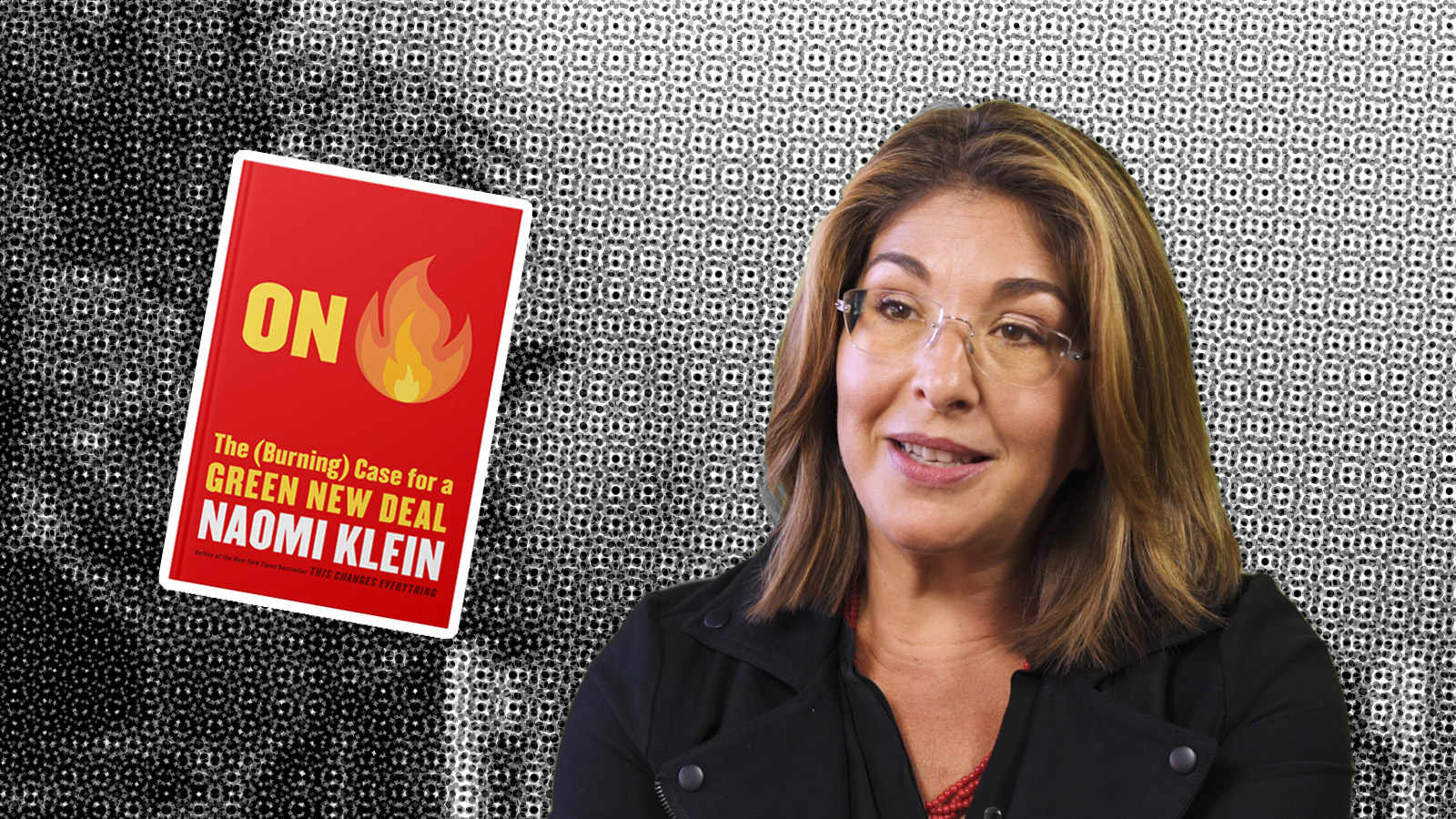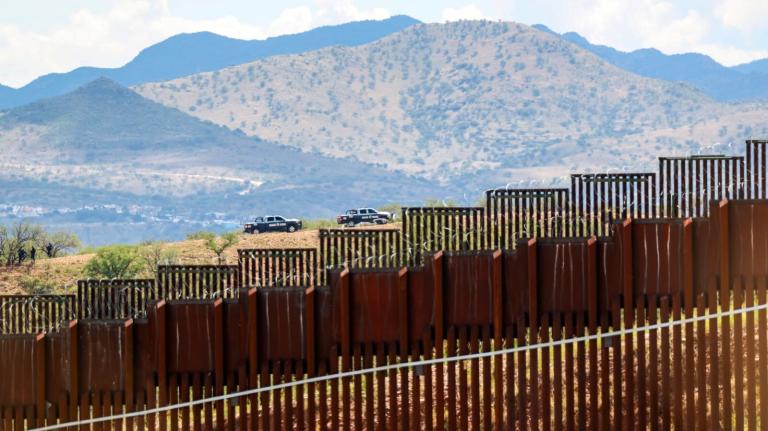There have been a few moments in history when it seemed like the United States was on the precipice of climate action. In the early 1980s, when Congress was alerted to the fact that emissions could indeed affect the climate. Then later that decade, when President George H.W. Bush promised to tackle the greenhouse effect with the “White House effect.” And, finally, at the second World Climate Conference in Geneva in 1990, when it seemed the U.S. was prepared to engage in good faith negotiations with the rest of the globe (spoiler: it didn’t).
Looking back now, each of those moments seems like an excruciating missed opportunity to head off the catastrophe headed our way — some of which is already playing out. Given our history of false starts, it’s easy to look at any new attempts to get politicians to curtail the crisis with an unhealthy dose of skepticism. Are our leaders really going to do something about climate change? Or are they just going to keep kicking the can down the road?
Naomi Klein, climate movement veteran and author of seminal works such as No Logo and This Changes Everything, thinks this moment is different. Her new essay collection, On Fire: The Burning Case for a Green New Deal, makes the case that the current political, social, and cultural zeitgeist is uniquely conducive to climate action. The moment we are in right now could be the one that actually, well, changes everything.
As the title suggests, Klein’s book makes a rousing case for an ambitious domestic climate deal. But she also examines the rise of eco-fascism, warns of a future in which first-world nations shut their doors to climate refugees and refuse to clean up the mess their emissions have caused, and champions a global Green New Deal, one that considers universal solutions rather than just national ones.
Those looking for concrete climate policies will have to wait for the actual Green New Deal legislation to be introduced in Congress early next year. On Fire is not a roadmap, it’s a reckoning — Klein takes stock of where we’ve been, where we are now, and where we could go. And, perhaps most importantly, it’s a reminder from the so-called “intellectual godmother of the Green New Deal” herself that this is a deal we can’t afford to refuse.
Grist sat down with Naomi Klein at our office in Seattle last week to discuss her new book. Our interview has been edited and condensed for clarity and length.
Q. I was with some of my friends recently — we’re all involved in the climate movement in different ways — and we were trying to remember the moment when the discourse around climate change shifted from a political conversation to a moral one. You’re one of the authorities on this — is there a moment you can point to when this shift occurred?
A. I think climate change has always been a moral conversation. When I think back 10 years to the Copenhagen Summit, there was a huge debate about what temperature to set as the target. Some governments pushed for a 2 degree Celsius temperature target, and countries that are very vulnerable and first impacted — island states, different African countries — were saying it has to be 1.5 degrees C. This could seem like a technical discussion, but it didn’t play out like a technical discussion, because when the draft of the agreement was leaked with a 2 degree temperature target in it, the African delegates walked out en masse. They said,” This is genocide. There won’t be enough money to buy us coffins.”
So I believe it’s always been a moral discussion. I think in the United States, parts of the climate movement have spoken about climate in a pretty narrow, technocratic way. The policies have tended to be very bureaucratic sounding. They’ve put up a fence, in a way, because there’s such a high bar of entry to even participate in a debate about, say, cap and trade. Even at the peak of the cap-and-trade debate, most Americans didn’t even know that cap and trade had anything to do with the environment, let alone climate change. So there’s a sort of a bloodlessness in the way policy responses were debated in this country. But I think that the people on the frontlines of climate disruption have always known this is a fundamental moral issue.
Q. In the intro to your book, you write about the youth climate strikes. How have those mass protests changed the nature of the climate fight?
A. In Europe and in North America, I think the youth climate strike movement has really broken open the heart of this debate. Now it’s impossible to hide from the underlying morality of the crisis. But it’s always been there. The truth is that it’s complicated to think about why are people suddenly understanding that this is a moral crisis when they weren’t a year ago. I can understand why there’s a lot of anger in communities of color, in the Global South, because people have been trying so hard to be heard and have done everything that they possibly can to draw attention to the moral crisis. Like the cabinet of the Maldives having an underwater cabinet meeting to try to draw the world’s attention to the fact that their country is disappearing. It’s just been systematically ignored. Now that more middle-class young people in Europe and North America are saying, “This is an attack on my future. This is an attack on me,” now it’s like, “Oh wow, this is a morality issue. This is a human rights crisis.” But it always has been.
Q. Society tends to become obsessed with young, brave people — Malala, the Parkland kids, Greta — and then kind of forgets about them once time has passed. Do you think society needs young heroes?
A. Honestly, I think it’s really unfair to Greta to hold her up as a singular figure, because what she’s saying day in and day out is that what restored her will to live — she was in a state of huge depression, right? — was becoming part of a movement. It didn’t begin with her. She knows that.
I think there’s always a desire to have a beginning point, like this person started it, this moment started it. But then you peel it back a little bit and you discover this whole web of subterranean inspiration. Greta has been very deliberate about sharing her platform in the U.S. with young people, particularly young people of color who are really on the frontlines. So it’s just not respectful to her or to any of the young people in this movement to to to tell a narrative of this singular clarion voice. I think Greta is incredible. What is dangerous is isolating her.
Q. You write that this era of climate action is different for two reasons: there’s a mounting source of peril, and there’s a new sense of promise. Can you talk about what makes those two things a good recipe for action?
A.I think that this moment we’re in is different than other moments that I’ve lived through where an issue that seemed to be a niche issue that a very small sector of society was concerned about suddenly became a mass concern. Occupy Wall Street is one example. In Europe it was even bigger; in Spain, Greece you had months of occupations of the main city centers. The Arab Spring. I was in Argentina in 2002 and 2003 when they went through five presidents. The whole country was in the streets banging pots and pans. Puerto Rico recently had one of those political effervescent moments where all of a sudden people have just had enough.
I’ve been part of these moments where suddenly everyone’s in the streets, suddenly there’s this huge kind of political radicalization — but there isn’t actually a plan for what we want instead, and a vacuum opens up, and it can be exploited by those on the right.
The difference in the moment that we’re in now — and this is why I think the Green New Deal is of incredible political significance — is that it represents a trend towards really articulating a bold and transformational vision for the next economy.
Why I do have some hope in this moment is that I think if we find ourselves with the right sort of political stars aligning, I don’t think we would repeat this sort of tragic error of losing that opening to, “Well, we don’t have any demands, let’s just have endless meetings and collapse into indecision,” which I’ve seen happen again and again. There’s a real cost to failing to seize the reins of history when those moments open up.
Q. Something I’ve heard from Green New Deal skeptics is that previous eras of robust government action occurred in response to a big, cataclysmic event — war. In the absence of war, how do you think similar action can be galvanized?
A. What’s significant about the Green New Deal is that it is an intersectional holistic response to multiple overlapping crises: unemployment, economic insecurity, racial injustice, gender exclusion, a crisis of respect for Indigenous rights. A really bold Green New Deal is not just about lowering emissions in line with science. It’s about saying, “Look, if we’re going to transform how we get our energy, move ourselves around, live in cities, etc., why wouldn’t we build a much fairer society on multiple different fronts at the same time?”
There’s a lot of work to be done to have a democratic process for what a transformational Green New Deal should be, one that’s really informed by the people most impacted by our extractive economy. But at least we’re talking about what the next economy should look like. We’re not just saying the one we have is failing.




